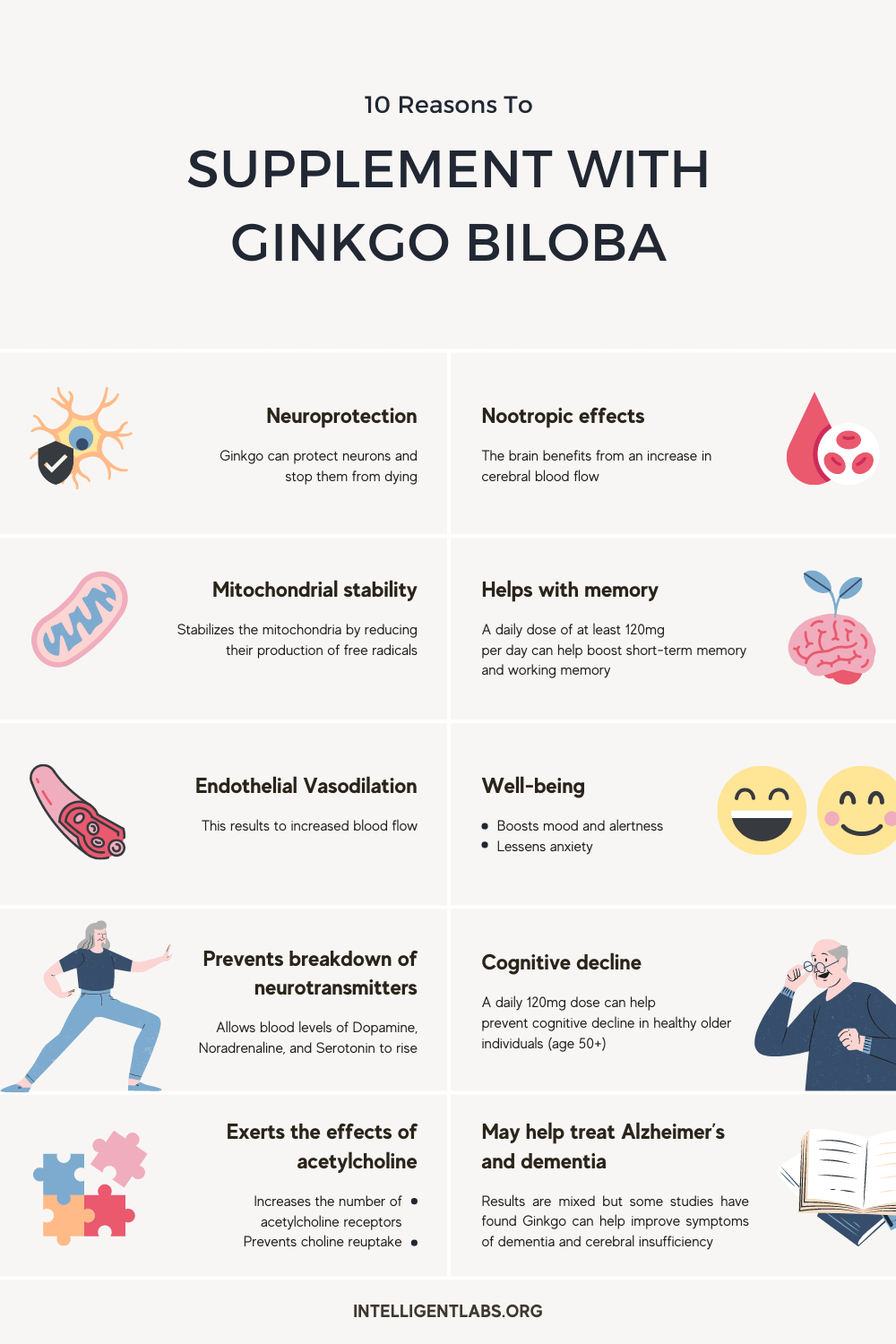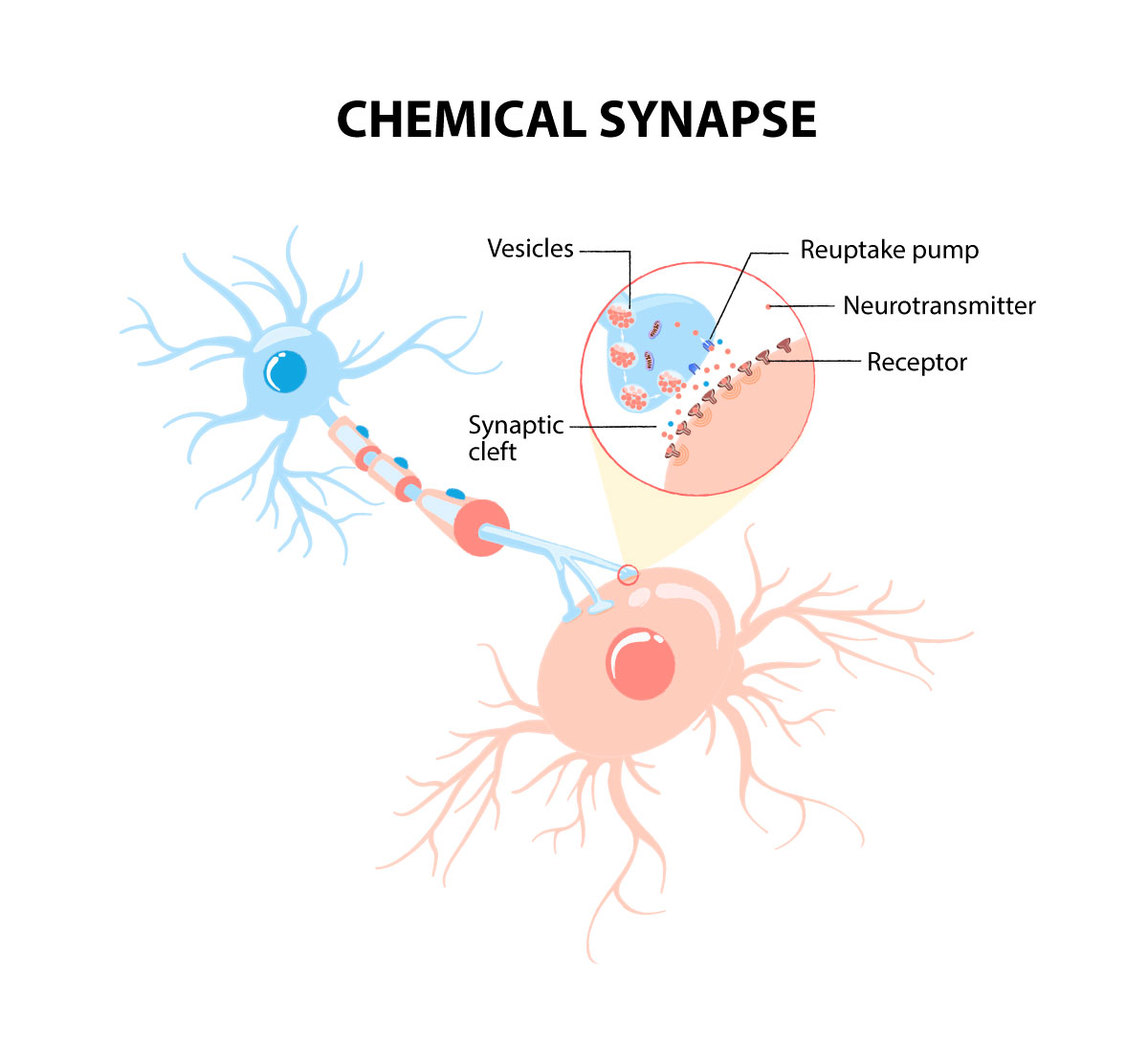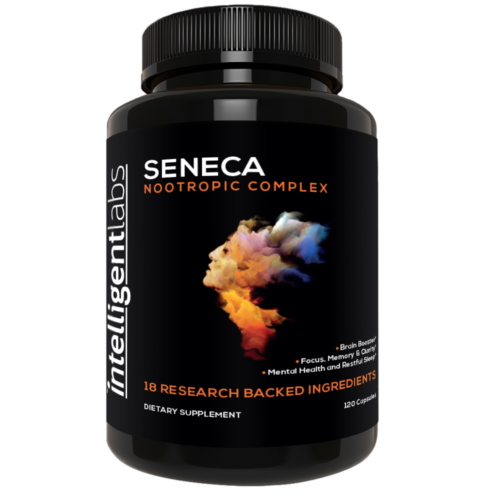Ginkgo Biloba has a long history in traditional Chinese medicine. The hype surrounding its purported health benefits is widespread not just in the West, but all over the world. But how much of it is based on facts and science? Find out why we added it as an ingredient in our all-natural nootropic stack, Seneca Nootropic Complex.
But first, to give you an idea of what to expect in this article, here are some of the most important highlights or benefits of taking Ginkgo:
- Ginkgo causes vasodilation of the blood vessels which leads to improved blood flow to the brain
- Ginkgo can improve memory
- It supports neuronal health and mitochondrial health
- Ginkgo also supports healthy levels of the neurotransmitters dopamine, noradrenaline, serotonin, and acetylcholine
Table of Contents
What is Ginkgo Biloba?
Ginkgo Biloba trees are sometimes called living fossils. It’s the only survivor of an ancient group of trees that date back to before dinosaurs walked on earth, some 245 million years ago. They can reach 40 meters in height, with some of them thought to be over 1500 years old.
Interestingly, eyewitness reports point to both Ginkgo trees and cockroaches as the only living things that can survive in areas most affected by radiation from the atom bombs dropped in Hiroshima and Nagasaki (1, 2)!
Also, Ginkgo’s use in traditional Chinese medicine goes back over 2000 years. Examples of use include treating asthma, kidney problems, skin problems, and even brain aging issues (aka dementia).
What are the active compounds in Ginkgo Biloba?
Ginkgo has a number of active compounds including Ginkgolides, Flavanoids, and Quercetin:
Ginkgolides inhibit platelet activation in the blood. Platelets are cell fragments. When activated, they cause red blood cells to stick to other, causing clots and reducing blood flow (3).
Ginkgo flavonoids stimulate an antioxidant response in the body by causing increased production of the body’s main antioxidants glutathione, SOD, and catalase (4, 5).
Quercetin has a number of antioxidant and anti-inflammatory properties. It plays a potential role in reducing the risk of a wide number of disorders. So far, research points to quercetin helping with neurodegenerative disorders, cancer, cardiovascular diseases, allergic disorders, thrombosis, atherosclerosis, hypertension, and arrhythmia (6).
What are the health benefits of Ginkgo Biloba?
The active compounds in Ginkgo are directly responsible for the following health benefits:

#1 – Neuroprotection
Ginkgo’s anti-inflammatory and antioxidant properties can protect brain neurons and stop them from dying. Animal studies do support these findings. Unfortunately, these results are impossible to replicate in human studies. Why? Because the subjects’ brains need to have their brains dissected!
That said, in one rat study, researchers induce Alzheimer’s by either injecting Amyloid β-Peptide (a protein associated with Alzheimer’s and dementia) into their brains or by creating strokes. Fortunately, Ginkgo supplementation helped protect their neurons and stopped them from dying (7, 8).
#2 – Mitochondrial stability
Another key role that Ginkgo can potentially play is the stabilization of the mitochondria by reducing free radical production. This reduces stress on them and stops them from dying off.
Mitochondrial stability is very important because the mitochondria are the ‘engines’ of our cells. We have around 2000 of them in each cell, but they are prone to damage as they produce free radicals to make energy.
Additionally, Ginkgo can also prevent the membrane release of cytochrome c and stop the production of Caspase 3 and 9. Both Caspases and cytochrome c release from the membrane signal apoptosis, aka cellular suicide, where the cell destroys itself (9, 10, 11, 12).
#3 – Endothelial vasodilation
Endothelial cells line our blood vessels, i.e. the arteries, veins, and capillaries. They help constrict and relax to change our blood pressure, depending on the activities we need to accomplish. They also allow oxygen, proteins, fats, vitamins, and minerals to diffuse in and out of the bloodstream.
However, whenever there is an increase in inflammation, it becomes more difficult to relax the endothelial cells and increase blood flow. Research, however, shows that Ginkgo can help relax endothelial cells and cause vasodilation, thus improving blood flow (13).
#4 – Acetylcholine production
Acetylcholine is often called the ‘smart’ neurotransmitter due to its association with learning and memory. The drug scopolamine inhibits acetylcholine by blocking its receptors. It can have a strong effect on reducing both memory and physical movement, both of which require acetylcholine to work properly.
Researchers can therefore use scopolamine in animal studies to judge how well certain compounds increase acetylcholine. If scopolamine still causes memory loss, then whatever other molecule they are testing is not affecting acetylcholine levels. Ginkgo, however, has been shown to inhibit the memory reduction caused by scopolamine administration in rats, therefore it increases acetylcholine (15).
In fact, further research has shown Ginkgo supplementation exerts the effects of acetylcholine in 2 ways. First, it increases the number of acetylcholine receptors (14). Secondly, it prevents choline reuptake by the presynaptic neurons in nerve synapses (15).
Interestingly, research shows that Ginkgo inhibits the gradual reduction in serotonin receptors in the hippocampus which is known to happen with age. And these serotonin receptors can actually stimulate acetylcholine release (16).

#5 – Dopamine, noradrenaline, and serotonin
Dopamine, serotonin, and noradrenaline are all known as catecholamine neurotransmitters and are closely related to each other. They are broken down by the same enzymes known as monoamine oxidases.
Dopamine is associated with focus and motivation. Noradrenaline with focus and energy. Serotonin with positive feelings.
Ginkgo can inhibit the monoamine oxidases. These stop neurotransmitters from breaking down, allowing their blood levels to rise (17).
#6 – Nootropic effects

A number of studies done on Ginkgo and its effects on cognitive function have reported its nootropic effects.
For example, Heiss and Zeiler first found that Ginkgo increased cerebral blood flow by about 8.4% in 1978. And then Tea et al in 1979 found it increases oxygen and glucose consumption in subjects with neurologic ischaemic syndrome (i.e. a reduction in blood flow). Xu’s 2015 study supports these earlier findings (18).
Ginkgo Biloba is one of the ingredients in our 18-ingredient nootropic stack, Seneca Nootropic Complex.
Each serving of Seneca contains 120mg of Ginkgo taken from 6000mg 50:1 whole plant extract. Other Seneca ingredients include ashwagandha, bacopa monnieri, phosphatidylserine, and more!
Related article: What Are Nootropics?
#7 – Memory
A study at the University of Surrey in England tested 31 healthy volunteers between 30 and 59 years of age. The volunteers took different Ginkgo doses ranging from 120mg, 150mg, 240mg, and 300mg as well as with placebo.
All of the volunteers tried each of the doses, with each supplementation period lasting 2 days. Researchers found significant increases in reaction time, short-term memory, and working memory scores. The best dose for Ginkgo supplementation was 120mg per day (19).
Another study found there was a significant improvement in memory with a dose of 600mg of Ginkgo. The subjects were tested only 1 hour after taking the supplement! (20)
A further study tested 188 healthy subjects between 45 and 56 years old with either 240mg of Ginkgo per day or a placebo for 6 weeks. They found a significant improvement in the Ginkgo group in a memory test known as ‘free recall’. This is a challenging test that requires subjects to remember a long list of items (21).

#8 – Cognitive decline
A study based in London tested subjects who were over 50 and generally physically healthy but showing mild to moderate symptoms of memory impairment. The subjects took 120mg of Ginkgo per day. Then they took tests that measured their cognitive function, including a speed copying test and an object classification test. They were tested before they started supplementation, and then at 12 weeks and 24 weeks.
The researchers found that there was a significant improvement in speed copying at 12 and 24 weeks. There was also a significant improvement in the classification test at 24 weeks (22).
#9 – Well-being and alertness
A large study followed 1570 men and women who took either a placebo or 120mg of Ginkgo daily for 4, 6 or 10 months. The subjects were tested in a number of different ways, including subjective scoring of how well they could deal with daily life, how good their mood was, and how alert they felt throughout the day.
The researchers found that Ginkgo improved scores on all the tests including reducing anxiety. They also found that the longer you took Ginkgo, the better the effect was (23).
#10 – Alzheimer’s and dementia
A number of placebo-controlled studies for Alzheimer’s and dementia patients have used Ginkgo. So far the results have been somewhat mixed. But this shouldn’t be an issue, really. Even pharmaceutical drugs approved for dementia treatment have only had a modest effect in slowing its progression.
For example, one review found that Ginkgo has a small effect on improving the symptoms of dementia and cerebral insufficiency. These were similar in effect to the drug Hydergine at a dosage of 120mg of Ginkgo per day for 4-6 weeks (24).
A further review paper looked at studies that had lasted for at least six months in duration. Compared to 4 second-generation cholinesterase inhibitors, Ginkgo had a similar level of effectiveness in treating moderate Alzheimer’s and dementia (25). Cholinesterase inhibitors help treat dementia by inhibiting the enzyme cholinesterase which breaks down acetylcholine.
What are the side effects of Ginkgo Biloba?
It’s generally well tolerated. But a few reported side effects beyond mild ones include nausea, diarrhea, dizziness, and headaches. However, it can interact with ‘blood thinner’ medications such as warfarin or diabetes medication. So if you are taking prescription medication, please speak to your doctor first.




